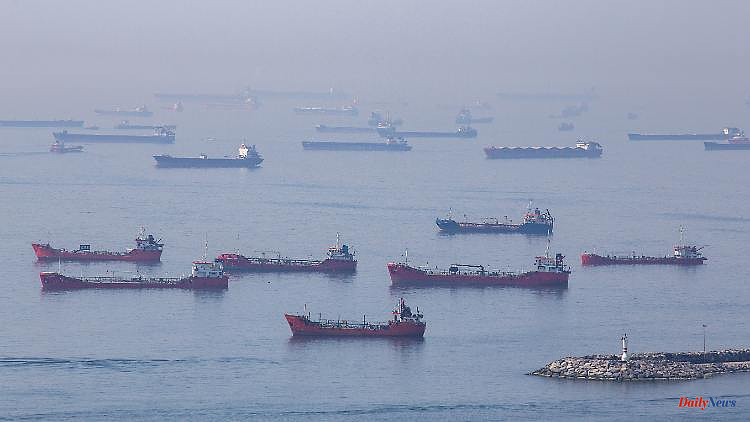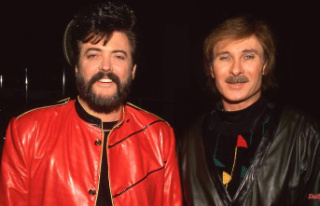The EU has imposed an embargo on Russian imports. Nevertheless, numerous ships cross the Bosphorus en route to Russian and Ukrainian ports. Some freighters are said to even load wheat in Odessa and Mariupol. Now the EU seems to want to take action against the loopholes.
There are only two days of sailing between Istanbul and Odessa. But there is no sign of the war on the Bosporus. Freighters and tankers cross the straits between Asia and Europe on their way to and from Russian and Ukrainian ports - despite Western sanctions. Trading is in full swing there. Around 40,000 ships sail here every year. The war did not change this number, say experts. The largest ships of the international companies have merely been replaced by smaller ones.
From his terrace overlooking the Bosphorus, Yörük Isik has been observing shipping traffic for a decade. Using a network of supporters, tracking apps and satellite imagery, he analyzes routes and cargo. "We track the ships from loading to arrival," says Isik. One of his findings: Freighters flying different flags even load wheat in Ukrainian ports blocked or controlled by Russia, such as Odessa, Chornomorsk or Mariupol. The grain is then shipped through the Bosphorus to the Mediterranean Sea to Syria, where Russia maintains a naval base - and from there to Lebanon and Egypt, says Isik.
"Russia is shamelessly stealing Ukrainian grain," denounced the Ukrainian ambassador in Ankara, Vasyl Bodnar. "In May alone we registered ten transits." He assumes that many more such exports remain undiscovered. During his visit to Turkey, Russian Foreign Minister Sergei Lavrov spoke about the establishment of sea corridors and security guarantees to enable the export of grain, which is urgently needed in many countries, from the ports in Ukraine. He blamed Ukraine for the grain blockade.
Turkey has not yet joined Western sanctions against Moscow over the Ukraine war. At the end of February it banned the passage of military ships through the Bosphorus and the Dardanelles, thereby implementing the Treaty of Montreux. This 1936 agreement grants Turkey sovereignty over the Bosphorus, the Sea of Marmara and the Dardanelles. But Ankara does not have the right to intercept or search merchant ships, argues a Turkish diplomat who wishes to remain anonymous.
Elizabete Aunina, Turkey expert at the University of Amsterdam, sees room for maneuver for Ankara: "If we look at the vague words of the contract, it leaves a lot of room for interpretation," she says. "The treaty did not provide for merchant ships to be able to transport stolen goods." In order not to be drawn deeper into the conflict, however, Ankara is sticking to the simplest interpretation of the agreement, Aunina analyses.
The European Union has imposed an embargo on Russian imports. Nevertheless, tankers under Greek or Maltese flags sail through the Bosphorus to the Russian ports in the Black Sea. Observer Isik also spotted old Turkish ships that "have never been seen in this area before" suddenly appeared in Novorossiysk, Russia, flying a flag of convenience - "probably on behalf of the Russian government." "What is happening here is unacceptable," says Isik.
Without openly admitting it, the European Commission has also discovered the loopholes in the current sanctions regulations, according to Brussels. According to this, a new package of sanctions should regulate the withdrawal of insurance from European ship operators if their freighters are caught red-handed.












